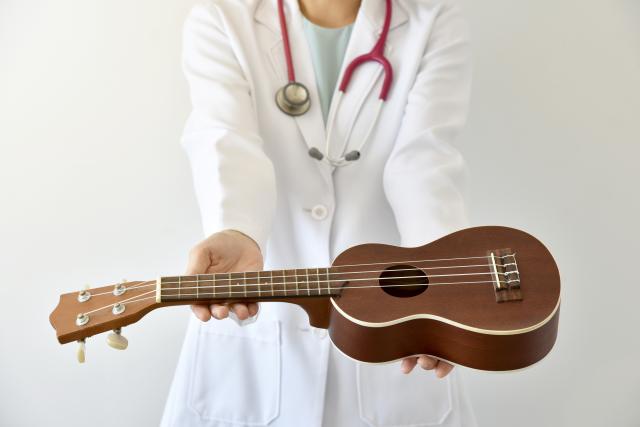There are over 800,000 people in Ireland today living with neurological conditions. The lack of supports and services to cater for their needs is widely documented. This week is International Brain Awareness Week and the theme this year is promoting access to services for people with neurological conditions.
Previously thought of more as a recreational activity, music therapy is now widely recognised as an effective treatment for people with neurological conditions, with a large body of international research and supporting evidence. Although Ireland has been slower to embrace this type of intervention compared to many of our western counterparts, music therapy is becoming an important part of treatment within many of Ireland’s leading healthcare facilities for people with neurological conditions.
One of Ireland’s top Neurologic Music Therapy professionals, and the founder of Ireland’s only music therapy clinic dedicated specifically to the neurological field, is Dr. Shane Cassidy, founder of Dublin based clinic, Neurolinks.
Here Dr. Shane Cassidy breaks down what Neurologic Music Therapy is and how it can be hugely beneficial for clients:
Music Therapy involves the use of music-based techniques to promote changes in non-musical brain function and behaviours. It is the planned and intentional use of music to meet individuals’ emotional, social, physical, psychological, behavioural and communication needs.
Music activates a widespread and bi-lateral network of brain regions involved in movement, language, memory, attention and emotional regulation. Music, therefore, has the potential to create new pathways between these regions to facilitate learning and re-learning of skills and behaviours that have been lost or impaired due to illness or injury.

Dr. Shane Cassidy states: “It really is quite incredible to see from scans just how many brain regions are activated through musical perception and production. We are harnessing that power of music and applying specific techniques to train functional skills and ultimately improve a person’s quality of life and independence.”
Music and rhythm promote neuroplasticity, or cortical remapping that helps to create new connections (neuropathways) to improve brain function. This is particularly important for the learning and re-learning of skills, such as speech and movement, that may be impaired or undeveloped due to a neurological condition.
“Many of my clients are looking to achieve a particular goal when they come to me, whether that be to improve their speech or their ability to walk, for example, but most report an improvement to their mood as well. Each person is unique and what works for one may not work for another.”
By assessing each person’s individual needs and preferences, their unique goals are established. Sessions can involve active music making, or more receptive methods depending on a person’s specific goal area.
For example, it is common that people who have had a stroke or acquired brain injury experience deficits in their walking speed and quality.
“In neurologic music therapy sessions, we use evidence from neuroscience to develop and apply techniques that use live music played at a specific tempo to develop and retrain a person’s walking parameters. The rhythm not only recruits the motor neurons along the spinal cord, but also harnesses the close link between the auditory and motor regions of the brain to improve mobility.”
Similarly, the use of rhythm and melody is central to improving and developing speech, language, and communication skills.
“There are several techniques that we use to support speech, language and communication. For example, in a case where someone may have aphasic speech, or difficulty expressing themselves verbally, we use techniques that take rhythm and melody to develop speech production. Alternatively, where someone may not have the capacity to communicate verbally, music provides an alternative and creative way of communicating.”
It is not necessary for a person to have any musical skills or experience to benefit from music therapy.
“I have worked with people who have had no particular interest in music, but we still used rhythmic stimulation as a way of helping them improve their walking speed and quality.”
The recognition and understanding of music therapy as an allied health profession in Ireland still falls shy of many of our international counterparts. While IACAT, the accrediting body for creative arts therapists in Ireland, are actively campaigning for statutory recognition here, music therapy has long since had statutory recognition in several countries, such as the UK, the Netherlands, the US and Canada. Obtaining this recognition would ensure that music therapy services are delivered by qualified, regulated therapists and would promote the highest professional standards for music therapists, and creative arts therapists generally.
Neurolinks is a clinic based in Sandyford, Dublin 18. For more information and appointments visit www.neurolinks.ie.







